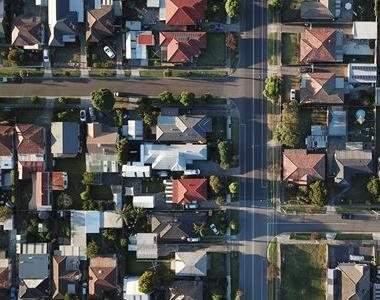The COVID-19 pandemic has had a profound impact on communities already devastated by drought, bushfires and floods in 2020, according to the Commissioner for Resilience NSW, Shane Fitzsimmons AFSM.
 Speaking to a CEDA audience via livestream on community resilience through a crisis, he said COVID has been “just another compounding event that’s testing the resilience” and resolve of communities right around Australia.
Speaking to a CEDA audience via livestream on community resilience through a crisis, he said COVID has been “just another compounding event that’s testing the resilience” and resolve of communities right around Australia.
“As we've started to emerge through January into February and where we are today, we've seen the significant implications of the COVID-19 pandemic response and our measures that have been necessary to impede the spread and not overload our hospital systems,” he said.
“That has had an extraordinary effect on communities and no one's immune.
“It's had profound effects on communities right across the globe and we're still dealing with that, including all sorts of socio-economic challenges that are also besetting communities.
“We've got communities that have been affected by one, two, three and even four of the very obvious and profound disasters that have really compromised the way they operate, the way they live, the way they function as a business, livelihoods, employment, losing everything they own, losing loved ones.”
Mr Fitzsimmons said that there are challenges ahead in not only the physical and building environment but the economic stimulus and the psychological and emotional well-being of individuals.
“There's no doubt that working together and being appreciative and recognising the multitude of challenges that people are facing, building resilience at an individual level, at a family level, at a community level, business, industry, government pulling together now sharing experiences, sharing concerns, but sharing in the solutions to help us all through this, is really important,” he said.
“One of the biggest challenges we've got and the feedback we're getting from all manner of stakeholders, is looking at a methodology. A resilience assessment across our communities or our localities and getting to understand what characteristics make that community unique what's it exposed to or vulnerable to, what are the traditional sorts of disruptions or disasters that challenge them?
“Whether it's a built environment or the demographics, understanding that, capturing it and articulating it is really important.
“If you look at our rural folk because of their isolation, their separation from others, there's inherently a level of resilience.
“They have backup power, they have good supplies of produce and food and those sorts of things, they've got alternate communications mechanisms.
“The closer you get to the built environments, the less routine personal resilience there is.
“There is a big discussion that we ought to have around resilience that’s personal, on the community level.
“It’s having a plan, bringing the community with us, mapping out our underlying current situation, our exposures, appreciating and understanding those and start contemplating what can we do today to better mitigate against and prevent disaster, disruption, dislocation in communities.
“There's a lot going on in this space and out of every disaster there is a silver lining.
“For me that's been the extraordinary goodwill of the Australian people coming together and the love and support has been quite remarkable, but so too all the learnings and lessons that are… being identified and captured to help us improve where we go from here.”
Also speaking at the event was Green Building Council of Australia Chief Executive Officer, Davina Rooney; WSP President and Chief Executive Officer A/NZ, Guy Templeton; Esri Australia Manager, Esri Disaster Response Program, Mark Wallace; and Deloitte Partner, Energy Transition & Decarbonisation, John O'Brien.